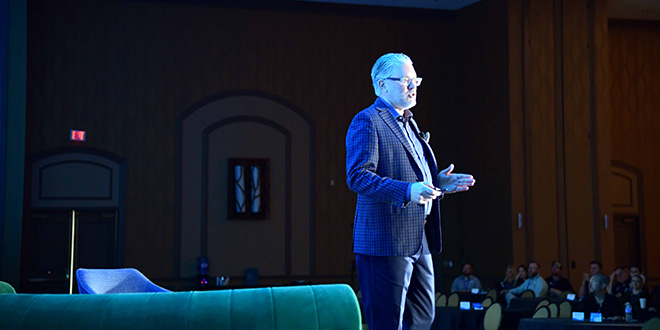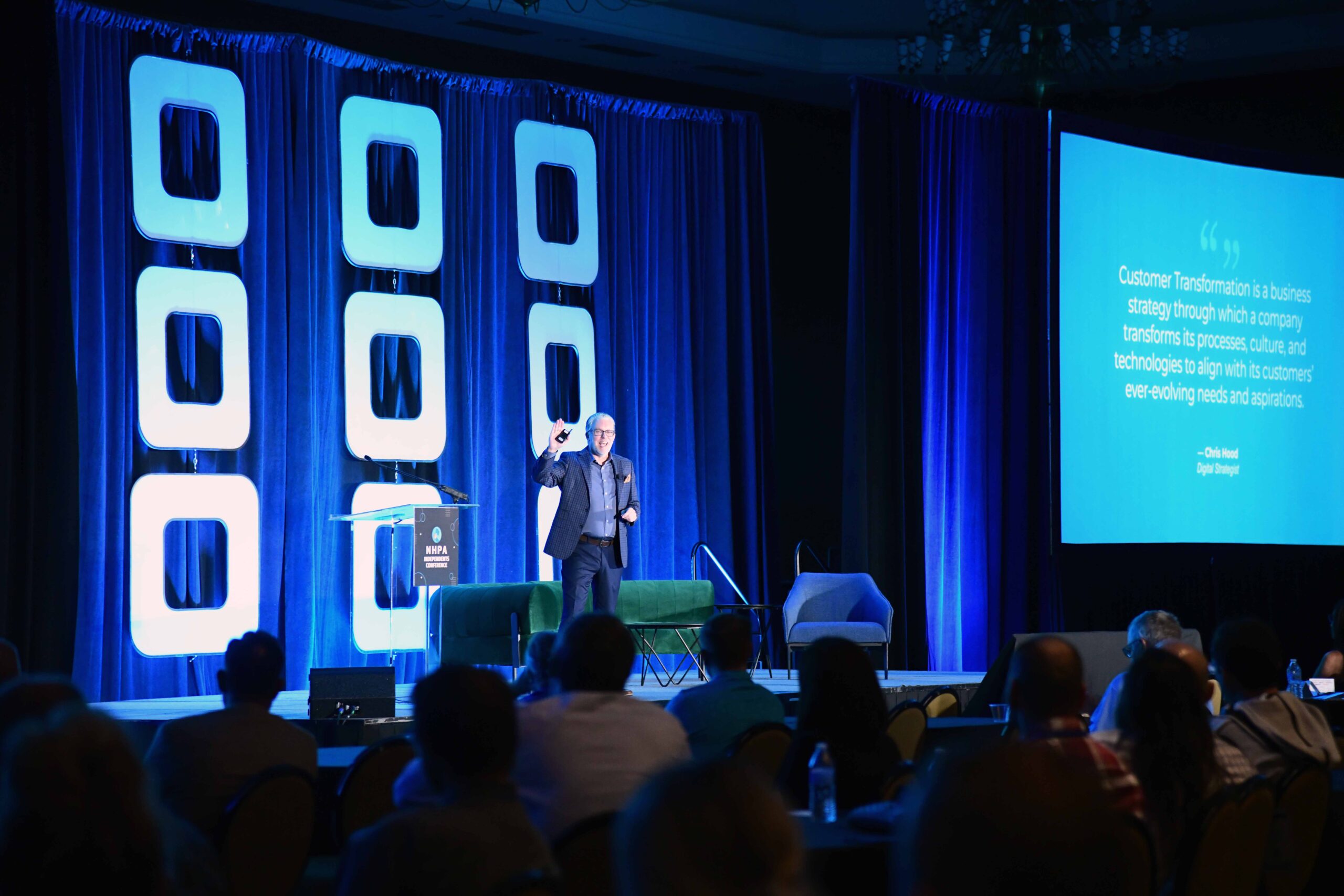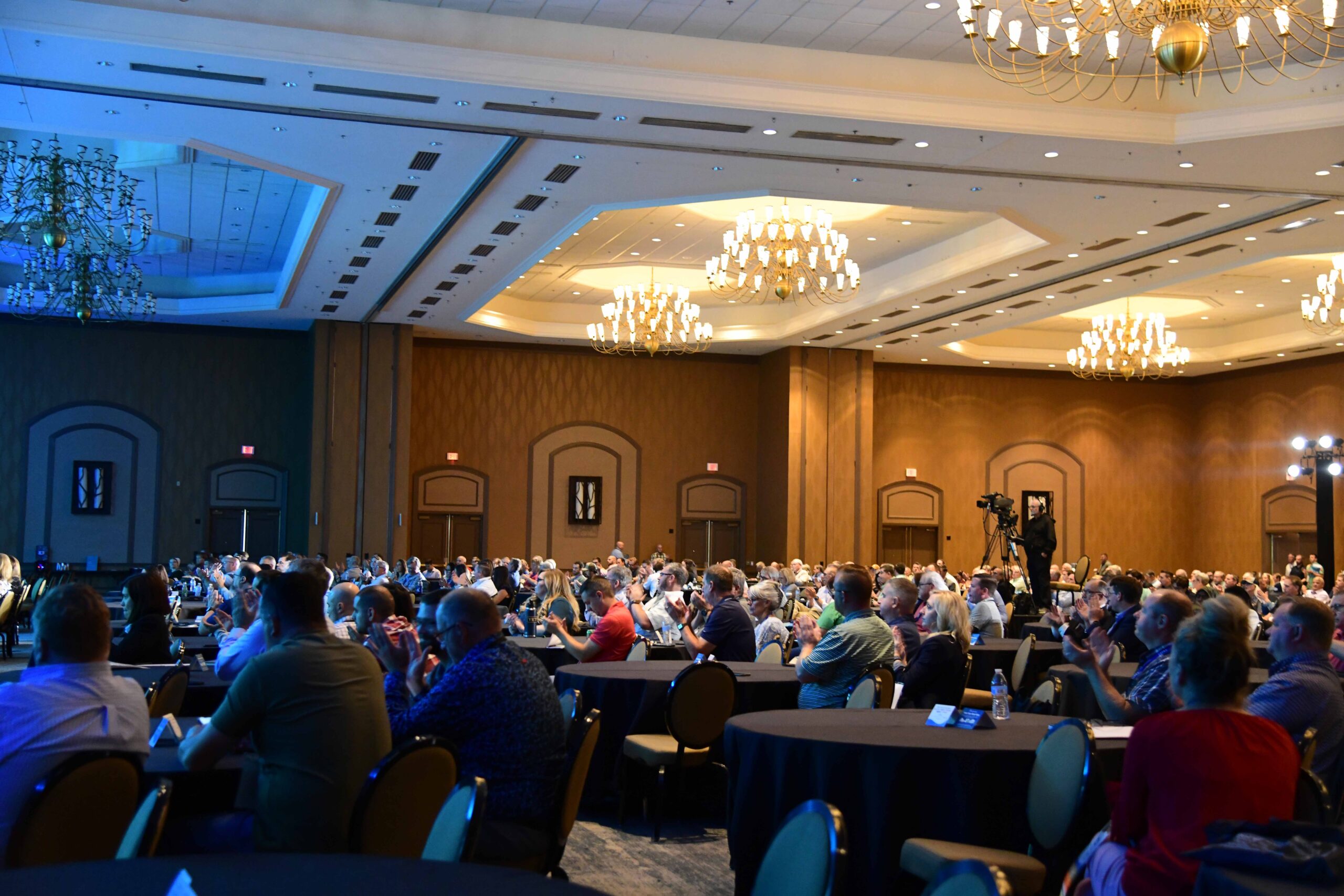
Accelerating Digital Outcomes to Serve Customers
Chris Hood is an internationally recognized voice, thought leader and digital strategist with over 35 years of experience in online entertainment and marketing for television, film, music and video games.
At his 2023 NHPA Independents Conference’s keynote, Hood shared that digital transformation is dead. The buzzword has become overused and stretched to meet the marketing needs of a variety of organizations.
Companies need to accelerate digital outcomes, not necessarily transform them. Acceleration starts with the right foundation, looking first to improve customer satisfaction rather than business outcomes, Hood says.
“Customer transformation is a business strategy through which a company transforms its processes, culture and technologies to align with its customers’ ever-evolving needs and aspirations,” he says. “When you meet consumer expectations, then you will meet your business outcomes.”
Another aspect of digital acceleration is data, which is crucial to understanding and delivering on what your customers want and need, Hood says.
“We’re all digital, so data is your best friend to deliver what the customer expects,” Hood says. “If we start asking customers what they want, then we’ll know. It’s more than assuming you know what they want, it’s about actually knowing and then doing something about it, using that data to make decisions that are customer-focused.”
In the end, innovation is about transforming with and for your customers, Hood says.
“If you fail to continuously adapt along with your customers, you eventually go out of business. This truth holds 100% of the time,” Hood says. “The technology is the easy part, it’s already in your hands. It’s about what you do with the technology to positively impact your customers.”
Through The Chris Hood Digital Show, Hood currently works with companies worldwide to develop digital strategies. Previously, Hood worked as the head of business innovation and strategy for Google, where he engaged with Fortune 500 companies to create digital transformation programs and build cultures of innovation. Hood also worked as a director for Fox Broadcasting, where he developed storytelling technologies and innovated new mechanisms for viewers to engage with television content.


More Insights From Chris
Learn about Chris Hood's eclectic career
North American Hardware and Paint Association (NHPA): You’ve worked in some interesting and exciting industries and have been involved in some cutting-edge technologies. Tell us about your first career in the film industry.
Chris Hood (CH): I actually had two jobs at that time, working at a movie theater and also selling computer software at a retail shop. It was great because the two jobs combined two of my passions: technology and movies. As I travel through my career, I’ve been able to keep both of those in sync with each other and really leverage what I learned from that retail experience and at the movie theater in my other roles in technology, media and entertainment.
NHPA: After some time in the movie industry, you brought your eye for innovation to the music industry. Tell us about what your startup company created.
CH: In 2003, I joined a startup company called Ruckus Network, which was created by two students out of MIT who wanted to create a way to share music on college campuses in a legal and free manner. It was a direct battle against Napster and the free sharing that was going on at that time. The technology from Ruckus was designed to distribute music freely on campus by working directly with the record labels to get license agreements. It was a lot like a student discount; Ruckus paid for the license agreements, and then through registrations and advertising we would then sell that back to the record label so the students could get it for free. While our business model, which was basically giving something away for free in exchange for advertising revenue, was simple and also almost unheard of at that time, it is now the basis of many streaming-type services many consumers use today.
NHPA: What are some of the other highlights of your career in terms of innovation and technology?
CH: I’ve had some exciting careers and professions and opportunities in the movie, television and video game industries. In each of them it comes down to how to bridge the gap between business problems or challenges that organizations are facing and the technology available to fix them.
We have business problems and have to leverage technology to combat those problems because consumers are engaging with businesses through technology. That’s what has been fascinating in my career; being able to leverage these ideas of innovation and digital strategy and build opportunities at organizations to use that technology. I’ve been able to help organizations build cultures that support innovation and digital strategies and help them reach the goals they want to achieve. Regardless of the industry piece of it, whether it’s TV or video games or retail or health care or even financial services, the problems are the same across the board, and I’ve loved having these types of conversations with executives to help them shift their mindsets so they can also be successful.
NHPA: Part of your keynote presentation at the NHPA Independents Conference will include talking about digital transformation. Can you share more on this idea?
CH: Just this year, I’ve started to play with this notion that digital transformation is dead. The phrase digital transformation has been overused and many have modified the definition to meet their specific advertising or marketing needs or internal culture. So I want to look at it from a different lens, which is digital acceleration. Digital transformation was about converting your organization to digital so that you can keep up with the demands of consumers, but the fact is we are already in a digital world. It’s no longer about trying to adapt. It’s about accelerating your digital outcomes so you can keep up with consumer demands because, at the end of the day, every single consumer who you have is trying to meet with you in some way. So why not make that easier and more understood, or a better experience through technology that we’re already engaged with?
Listen for More Insights
Key Takeaways
Innovation is not about the technology itself, it’s about what you do with the technology to meet consumer needs.
- Chris Hood
Former Head of Business Innovation & Strategy, Google


